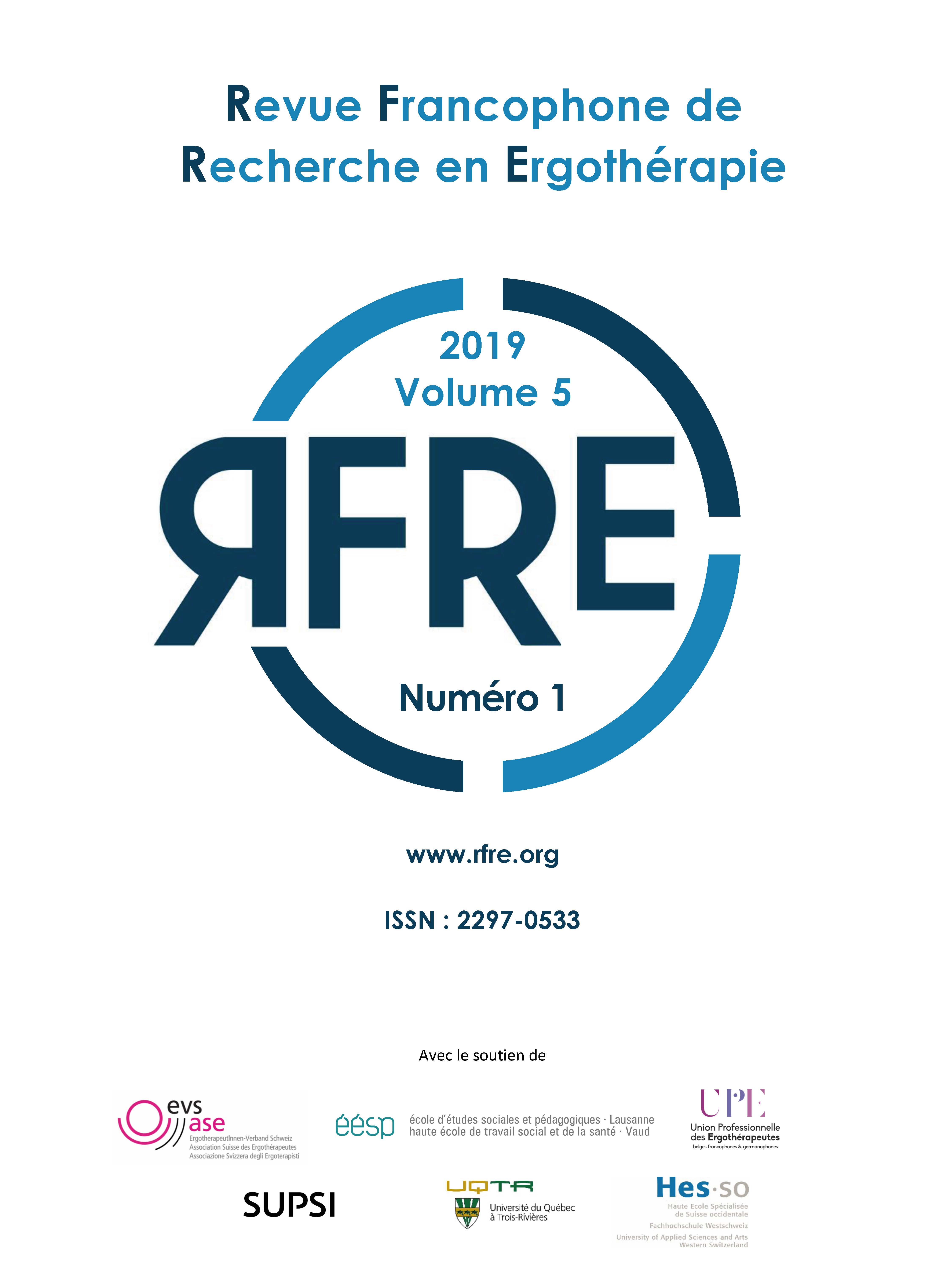Validation of the Scale of confidence in practising as a professional occupational therapist (SCPPOT)
DOI:
https://doi.org/10.13096/rfre.v5n1.74Keywords:
Self-efficacy, Occupational therapy, Student, EvaluationAbstract
Introduction. Occupational therapy students’ confidence in their ability to perform occupational therapists’ various tasks, i.e. their self-efficacy in practising as a professional occupational therapist, affects their performance and professional development. Thus one of the desired outcomes of any occupational therapy training program is to increase students’ self-efficacy in practising as a professional occupational therapist, hence the interest in measuring it. Because there was no valid tool specifically measuring this concept, the Scale of confidence in practising as a professional occupational therapist (SCPPOT) was developed in 2014 but as yet no empirical validation studies have been done.
Goals/objectives. To study test-retest reliability, internal consistency and construct validity of the SCPPOT.
Method. Seventy-two students in the first year (n = 33) and fourth year (n = 39) of a French-language occupational therapy program in Quebec participated in the study. To examine test-retest reliability, students completed the SCPPOT at two different times. The internal consistency as well as three types of construct validity were studied: extreme groups, convergent and discriminant.
Results. Test-retest reliability was excellent among first year students (ICC: 0.92) and very good among fourth year students (ICC: 0.77). Internal consistency for the tool was very high (a : 0,86). The difference between the scores for the two groups of students was statistically significant (p < 0.001) (extreme groups validity). Results obtained on the SCPPOT were correlated with those obtained using a tool measuring a similar concept (Student Confidence Questionnaire) (Rho = 0.82 and Rho = 0.66; p < 0.001) (convergent validity). No correlation was found between the SCPPOT and academic performance (Rho = 0.04, p = 0.83 and Rho = 0.02, p = 0.92) (discriminant validity).
Conclusion. The SCPPOT produces stable results when assessing self-efficacy in practising as a professional occupational therapist and also differentiates between students at different stages in their occupational therapy training. Academic performance is not correlated with results obtained on the SCPPOT. This first empirical validation study suggests that the SCPPOT generates a reliable, valid assessment of occupational therapy students’ self-efficacy in practising as a professional occupational therapist. Thus, this new tool could be used to assess the impact of an occupational therapy training program on students’ self-efficacy.












